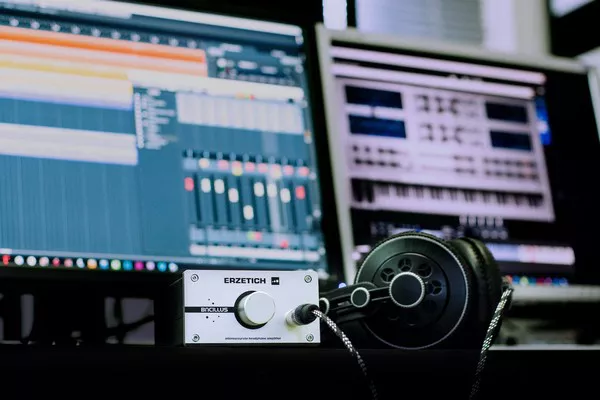Sleep, an essential aspect of our lives, contributes significantly to our overall well-being. However, for many, achieving a restful night’s sleep can be elusive. Amid various remedies and techniques aimed at enhancing sleep quality, music has emerged as a popular and accessible aid. The question persists: Does music help you sleep? Scientific studies and anecdotal evidence suggest a positive correlation between music and improved sleep patterns.
In recent years, researchers have delved into the relationship between music and sleep, aiming to unravel its potential benefits. Numerous studies have explored the impact of music on sleep quality, duration, and overall sleep experience. The results have been intriguing, demonstrating that music can indeed be a valuable tool in promoting better sleep.
Understanding the Role of Music in Sleep
The human mind exhibits a fascinating response to auditory stimuli, and music, with its rhythmic patterns and melodies, has the potential to influence our mental states profoundly. Does music help you sleep? The answer lies partly in its ability to evoke emotional responses and induce relaxation. Slow-tempo music, particularly classical, ambient, or nature sounds, has been observed to calm the mind and lower heart rate and blood pressure, creating an environment conducive to sleep.
The process by which music aids sleep isn’t uniform for everyone. Preferences in music genre, individual psychological factors, and personal experiences can influence its effectiveness. However, the overarching consensus remains that music has a notable impact on the quality of sleep for a substantial portion of the population.
Scientific Evidence Supporting Music’s Influence on Sleep
Research within the realm of sleep science has provided compelling evidence supporting the notion that music can positively affect sleep quality. A study published in the Journal of Advanced Nursing found that listening to soothing music for 45 minutes before sleep significantly improved subjective sleep quality in older adults with sleep disturbances. This study sheds light on the potential of music as a non-pharmacological intervention for sleep-related issues.
Furthermore, a meta-analysis conducted by the National Center for Biotechnology Information (NCBI) concluded that music-based interventions had a moderate positive effect on various sleep-related parameters, including sleep quality, efficiency, and duration. These findings underscore the potential of music as a therapeutic tool for addressing sleep disorders and improving overall sleep health.
The Psychological Mechanisms Behind Music’s Sleep-Inducing Properties
The mechanisms underlying the relationship between music and sleep are multifaceted. Music’s impact on sleep quality can be attributed to its ability to engage the parasympathetic nervous system, promoting relaxation and reducing stress and anxiety levels. This, in turn, facilitates the transition to a state conducive to falling asleep.
Moreover, music acts as a distractor, diverting attention away from intrusive thoughts or external stimuli that might impede the onset of sleep. By providing a soothing and familiar auditory backdrop, music can create an environment that encourages mental calmness, allowing individuals to drift into a state of relaxation more easily.
The Importance of Music Selection and Personal Preference
One crucial aspect to consider when exploring the question, “Does music help you sleep?” is the significance of individual music preferences. While classical compositions or ambient sounds are commonly associated with relaxation and sleep induction, the effectiveness of music in aiding sleep can vary greatly from person to person.
Some individuals may find solace in instrumental music, while others might prefer nature sounds or white noise. Personal associations and emotional connections to certain songs or genres also play a pivotal role in determining the efficacy of music as a sleep aid. Consequently, the key lies in identifying music that personally resonates and promotes relaxation for better sleep outcomes.
Practical Applications of Music for Improved Sleep
Incorporating music into bedtime routines can serve as an accessible and cost-effective strategy to enhance sleep quality. Establishing a consistent pre-sleep ritual that involves listening to calming music can signal the body and mind that it is time to unwind and prepare for rest.
Creating playlists curated with preferred calming tracks or utilizing specialized sleep-inducing music apps can aid in optimizing the sleep environment. Moreover, exploring guided meditation or relaxation techniques accompanied by music can further amplify its sleep-enhancing effects.
Considerations and Limitations
Despite the growing body of evidence supporting the efficacy of music in promoting better sleep, certain limitations warrant consideration. Individual variability in music preferences and responses can influence its effectiveness as a sleep aid. Additionally, the optimal duration and timing of music exposure before bedtime might differ among individuals.
Moreover, while music can aid in initiating sleep, its impact on sustaining deep sleep throughout the night might vary. Factors such as environmental disturbances, underlying sleep disorders, or personal health conditions can also affect the overall efficacy of music as a standalone intervention for sleep disturbances.
Conclusion
The question, “Does music help you sleep?” has sparked numerous investigations and discussions within the realm of sleep science. The cumulative evidence suggests that music indeed holds promise as a tool to enhance sleep quality and aid in relaxation before bedtime.
By harnessing its ability to evoke emotions, induce relaxation, and divert attention, music can create an optimal mental environment for sleep initiation. However, acknowledging individual preferences and considering it as part of a comprehensive sleep hygiene routine is crucial in harnessing its full potential.
As ongoing research continues to unravel the intricate relationship between music and sleep, integrating soothing melodies into nightly routines remains a simple yet potentially impactful approach for those seeking to improve their sleep patterns and overall well-being.


























